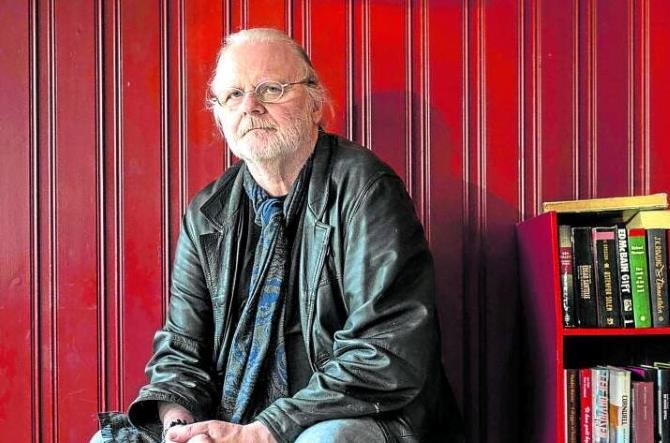On Thursday, October 5th, 2023, at 12:00 pm, an eagerly awaited announcement revealed that the renowned Norwegian playwright and author, Jon Fosse, had been awarded the illustrious Nobel Prize in Literature for 2023. This much-awaited recognition not only celebrates Fosse's extraordinary talent but also marks a significant milestone for Norwegian literature as a whole. Who is Jon Fosse, and what particular literary accomplishments have led to his receiving this esteemed honor?
Education Shaped His Remarkable Writing Career
Born on September 29, 1959, in Haugesund, a city on Norway's west coast, Jon Fosse grew up in Dale, a modest village near Haugesund. His father, Sigurd Fosse, worked as a schoolteacher, and his mother, Aslaug Fosse, as a nurse. The surname 'Fosse' means waterfall in Norwegian. After completing his secondary education, Fosse moved to Bergen, a city in southwest Norway, and pursued his studies in comparative literature at the University of Bergen. It was during this time that his profound love for literature took hold, inspiring him to write poetry and plays. Fosse's academic ventures laid a solid foundation for his writing career, exposing him to diverse literary traditions and theories that profoundly shaped his creative approach. Additionally, his education honed his critical thinking and analytical skills, greatly enhancing his mastery of writing.
A Pioneer in Norwegian Literature
Jon Fosse has long been regarded as a pioneer in Norwegian literature. Throughout his career, he has contributed unique and profound works that have challenged conventional literary norms and received positive reviews from literary critics in Norway. His writing style, characterized by sparse dialogue, poetic language, and a focus on existential themes, has captivated readers and helped establish him as a significant voice in Norwegian literature. Fosse has been the recipient of several prestigious literary awards in Norway, including the Brage Prize, the Critics’ Prize, and the Nordic Council’s Literature Prize. These accolades not only showcased his talent but also brought attention to his work and solidified his position in the Norwegian literary landscape.
Jon Fosse’s unique writing style and themes have indeed influenced and inspired several Norwegian writers. These included celebrated contemporary Norwegian writer, Vigdis Hjorth who expressed admiration for Fosse’s writing and admitted that his amazing ability to delve into the depths of human consciousness influenced her own works.
Herbjørg Wassmo: Wassmo, a prominent Norwegian author known for her powerful storytelling, has also acknowledged Fosse as an important influence. She has referred to his unique language and exploration of human relationships as a source of inspiration.
Exploring Norway’s Regional Themes
Jon Fosse has a distinctive approach to exploring regional themes in his works. He often delves into the cultural, social, and historical aspects of his home country, providing a deep sense of place and identity.
His works emphasize the unique cultural heritage of Norway. For instance, in his play "Nightsongs" (1997), he explores the rich traditions and folklore of rural Norwegian communities, capturing the essence of rural life.
Fosse also incorporates historical events relating to Norway in his works. In "The Name" (1995), he delves into the aftermath of the Second World War and its impact on Norwegian society, providing insight into the historical context of the country.
Additionally, Fosse addresses prevalent social issues within Norwegian society, such as inequality, isolation, and the impact of urbanization on rural communities. Several of his works, including "Someone is Going to Come" (Nokon kjem til å komme), a play first performed in 1996, revolve around a couple who move to a remote house by the sea. As they settle into their new environment, their relationship dynamic begins to shift, and they grapple with feelings of isolation, suspicion, and the intrusion of an outsider. The play explores themes of loneliness, uncertainty, and the fragility of relationships.
Transcending Cultural Boundaries
Beyond the borders of Norway, Jon Fosse's literature has left a profound impact on the global literary landscape. His works have been translated into numerous languages, allowing readers worldwide to immerse themselves in his profound storytelling. Fosse's ability to depict universal human experiences has firmly established him as an author of international significance, bridging the gap between Norwegian literature and the rest of the world.
Fosse's plays have been translated into 50 languages and staged in various countries outside Norway, including the United States, United Kingdom, France, Germany, and Japan, among others. Furthermore, his works have been adapted into films, operas, and dance productions. For instance, Finnish composer Jukka Linkola beautifully transformed his play "Andvake" into an opera. This exemplifies Fosse's openness and eagerness to collaborate closely with writers and artists from different cultures. Notably, he collaborated with the Belgian theater company Het Toneelhuis on the play "Visions of Simone," exploring themes of human connectivity and identity. Such cross-cultural productions foster dialogue and understanding between artistic traditions, contributing to Fosse's enduring influence.
In recognition of his remarkable contributions, Fosse has been honored with numerous awards, including the prestigious International Ibsen Award. This esteemed recognition not only underscores his global impact but also highlights the universality of his themes, resonating with audiences across borders.
Pre-Nobel Global Prominence
In conclusion, Jon Fosse's remarkable ability to beautifully explore regional and global themes has effectively bridged the gap between Norway and the rest of the world. His capacity to think and write beyond boundaries has paved the way for international recognition, even before being awarded the Nobel Prize. The US magazine The Atlantic, in its October 5, 2023 edition, highlighted Fosse's widespread recognition, stating that he was already better known in the English-speaking world on the morning of the Nobel Prize announcement than many past winners have been. Jon Fosse's Nobel Prize in Literature for 2023 signifies the elevation of Norwegian literature to new heights of recognition and admiration. Fosse's unique writing style, exploration of universal themes, and global impact have shaped the literary landscape not only in Norway but also beyond. With this well-deserved accolade, Fosse's work will continue to inspire and influence future generations of writers, cementing his legacy and invigorating the vibrant and diverse body of Norwegian literature.




